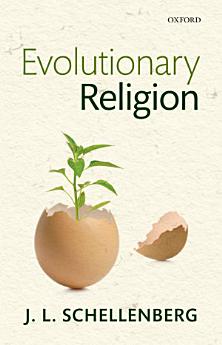Evolutionary Religion
មិថុនា 2013 · OUP Oxford
5.0star
ការវាយតម្លៃ 1report
សៀវភៅអេឡិចត្រូនិច
192
ទំព័រ
family_home
មានសិទ្ធិ
info
reportការវាយតម្លៃ និងមតិវាយតម្លៃមិនត្រូវបានផ្ទៀងផ្ទាត់ទេ ស្វែងយល់បន្ថែម
អំពីសៀវភៅអេឡិចត្រូនិកនេះ
J. L. Schellenberg articulates and defends a simple but revolutionary idea: we are still at a very early stage in the possible history of intelligent life on our planet, and should frame our religious attitudes accordingly. Humans have begun to adapt to a deep past—one measured in billions of years, not thousands. But we have not really noticed how thin is the sliver of past time in which all of our religious life is contained. And the eons that may yet see intelligent life have hardly started to come into focus. When these things are internalized, our whole picture of religion may change. For then we will for the first time be in a position to ask: Might there be a form of religion appropriate to such an early stage of development as our own? Might such 'evolutionary religion' be rather different from the forms of religion we see all around us today? And might it be better fitted to meet the demands of reason? Though most concerned simply to get a new discussion going, Evolutionary Religion maintains that the answer is in each case 'yes'. When the light of deep time has fully been switched on, a new form of skepticism but, at the same time, new possibilities of religious life will come into view. We will find ourselves drawn to religious attitudes that, while not foregoing the idea of a transcendent ultimate, manage to do without believing and without details. As Schellenberg reveals, pursuing evolutionary religion instead of embracing a scientific naturalism is something that can rationally be done, even if traditional religious belief is placed out of bounds by argument. And ironically it is science that should help us see this. Indeed, in a new cultural dispensation evolutionary religion may come to be a preferred option among those most concerned for our intellectual enrichment and for our survival into the deep future.
ការដាក់ផ្កាយ និងមតិវាយតម្លៃ
5.0
ការវាយតម្លៃ 1
អំពីអ្នកនិពន្ធ
J. L. Schellenberg (DPhil, Oxford) is Professor of Philosophy at Mount Saint Vincent University and Adjunct Professor in the Faculty of Graduate Studies at Dalhousie University. He is the author of the seminal Divine Hiddenness and Human Reason (Cornell University Press, 1993), which introduced the now well-known hiddenness argument for atheism, and of an acclaimed trilogy on the philosophy of religion: Prolegomena to a Philosophy of Religion, The Wisdom to Doubt: A Justification of Religious Skepticism, and The Will to Imagine: A Justification of Skeptical Religion (Cornell University Press, 2005; 2007; 2009). In 2013 the journal Religious Studies will publish a special issue dedicated to Schellenbergs philosophy of religion.
វាយតម្លៃសៀវភៅអេឡិចត្រូនិកនេះ
ប្រាប់យើងអំពីការយល់ឃើញរបស់អ្នក។
អានព័ត៌មាន
ទូរសព្ទឆ្លាតវៃ និងថេប្លេត
ដំឡើងកម្មវិធី Google Play Books សម្រាប់ Android និង iPad/iPhone ។ វាធ្វើសមកាលកម្មដោយស្វ័យប្រវត្តិជាមួយគណនីរបស់អ្នក និងអនុញ្ញាតឱ្យអ្នកអានពេលមានអ៊ីនធឺណិត ឬគ្មានអ៊ីនធឺណិតនៅគ្រប់ទីកន្លែង។
កុំព្យូទ័រយួរដៃ និងកុំព្យូទ័រ
អ្នកអាចស្ដាប់សៀវភៅជាសំឡេងដែលបានទិញនៅក្នុង Google Play ដោយប្រើកម្មវិធីរុករកតាមអ៊ីនធឺណិតក្នុងកុំព្យូទ័ររបស់អ្នក។
eReaders និងឧបករណ៍ផ្សេងទៀត
ដើម្បីអាននៅលើឧបករណ៍ e-ink ដូចជាឧបករណ៍អានសៀវភៅអេឡិចត្រូនិក Kobo អ្នកនឹងត្រូវទាញយកឯកសារ ហើយផ្ទេរវាទៅឧបករណ៍របស់អ្នក។ សូមអនុវត្តតាមការណែនាំលម្អិតរបស់មជ្ឈមណ្ឌលជំនួយ ដើម្បីផ្ទេរឯកសារទៅឧបករណ៍អានសៀវភៅអេឡិចត្រូនិកដែលស្គាល់។






